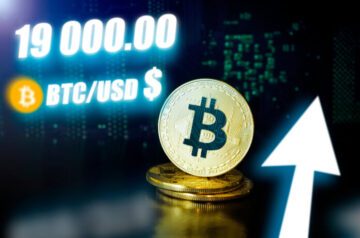If investors insist on trying to time their moves in stock markets, said Warren Buffett almost 20 years ago, they should be fearful when others are greedy, and greedy only when others are fearful.
It is good contrarian stuff. And the time-honoured depiction of markets in the permanent push-pull grip of these two animal spirits has an enduring appeal because (nuance and caveats aside) it does actually explain a lot of market psychology quite neatly. The difficulty arises, as now, when greed and fear start defining themselves as the same thing.
In the parsing of the FTX collapse — and of a string of other recent debacles that seem ominously comparable as phenomena of the loose money era — fear of missing out (Fomo) has repeatedly emerged as the critical ingredient in the investment build-up before the fall. Fear, in this usage of the word and in the context of the FTX and wider crypto run-up, was creating something that looked an awful lot like irrational exuberance. This exuberance, in turn, was fuelling something that behaved from a market standpoint an awful lot like greed does during its periodic stints at the wheel.
As the Fomo narrative has it, investment money (much of it under the auspices of large, seemingly respectable funds) thunders collectively into particular assets (in many cases, with minimal due diligence) not because it necessarily believes in the underlying opportunity but because the rewards are presented as unmissable and the consequences of delay or scepticism are somehow scary.
The idea is not novel, even if the acronym is. Similar thought processes have featured before in earlier crises. In 2007, Citi’s Chuck Prince famously stressed the need to keep dancing as long as the music was playing: a freely chosen indulgence presented as an unquestionable obligation.
So is the current version of Fomo just greed in disguise? It is tempting to think so or, at the very least, conclude that the word “fear” here describes a more discretionary and easily surmountable dread than, say, the fear of loss, value destruction or worse. The casting of Fomo as a genuine fear demands evidence that there is some price to be paid for missing out (of the sort shops experience, for example, during panic-buying prompted by public alarm). Self-recrimination for a bonanza skipped, or the wrath of a dissatisfied investor, do not quite count.
During the past half decade of tech-centric investment, however, Masayoshi Son’s SoftBank has led the way in instilling a more legitimate set of Fomo concerns for certain investors. When the first of his Vision Funds launched in 2017, the $100bn vehicle was explicitly designed to create a new genre of tech investment.
It did this (or planned to) by using its scale not just to identify potential winners but to shower them with enough funding to ensure that, on metrics such as market share, they probably would be. This implied guarantee of dominance, however flawed, set a tone that would resonate: if investment is not about prospects but sure things, then Fomo is not greedy but wise.
With tech and crypto Fomo now in some limbo, a much larger and more complex version now sits on the horizon in China, and could dominate corporate and financial investment next year. A good number of fund managers say they are already positioning themselves for a short-term “Fomo event”. A relatively quick reopening of China or a sharp relaxation of zero-Covid rules is a change that no global or Asia-focused investor can afford to miss. The feeding frenzy could ramp up very swiftly.
But the longer-term Fomo trade relates to geopolitics, and to the way in which US and Chinese industrial policies have set themselves sufficiently at odds with one another to make some form of decoupling look more inevitable. Behind the rhetoric of the US Chips Act and the Made in China ambitions are geopolitical shifts that could eventually oblige more and more companies — in the US, Europe, Japan, South Korea and elsewhere — to make some kind of choice between the two blocs. In some cases, this might take the form of redesigned supply chains and other “friendshoring” investments to allow dual-track manufacturing and sales.
For others, though, there may be serious pressure to rethink being in China at all. And business leaders and their investors should perhaps consider that there may be valid reasons to miss out on the world’s greatest gross domestic product growth engine. This, truly, will put the “f” in Fomo: the question is whether the fear is strong enough for companies to push back before it happens.
- Bitcoin
- bizbuildermike
- blockchain
- blockchain compliance
- blockchain conference
- Blockchain Consultants
- coinbase
- coingenius
- Consensus
- crypto conference
- crypto mining
- cryptocurrency
- decentralized
- DeFi
- Digital Assets
- ethereum
- machine learning
- non fungible token
- plato
- plato ai
- Plato Data Intelligence
- Platoblockchain
- PlatoData
- platogaming
- Polygon
- proof of stake
- W3
- zephyrnet











